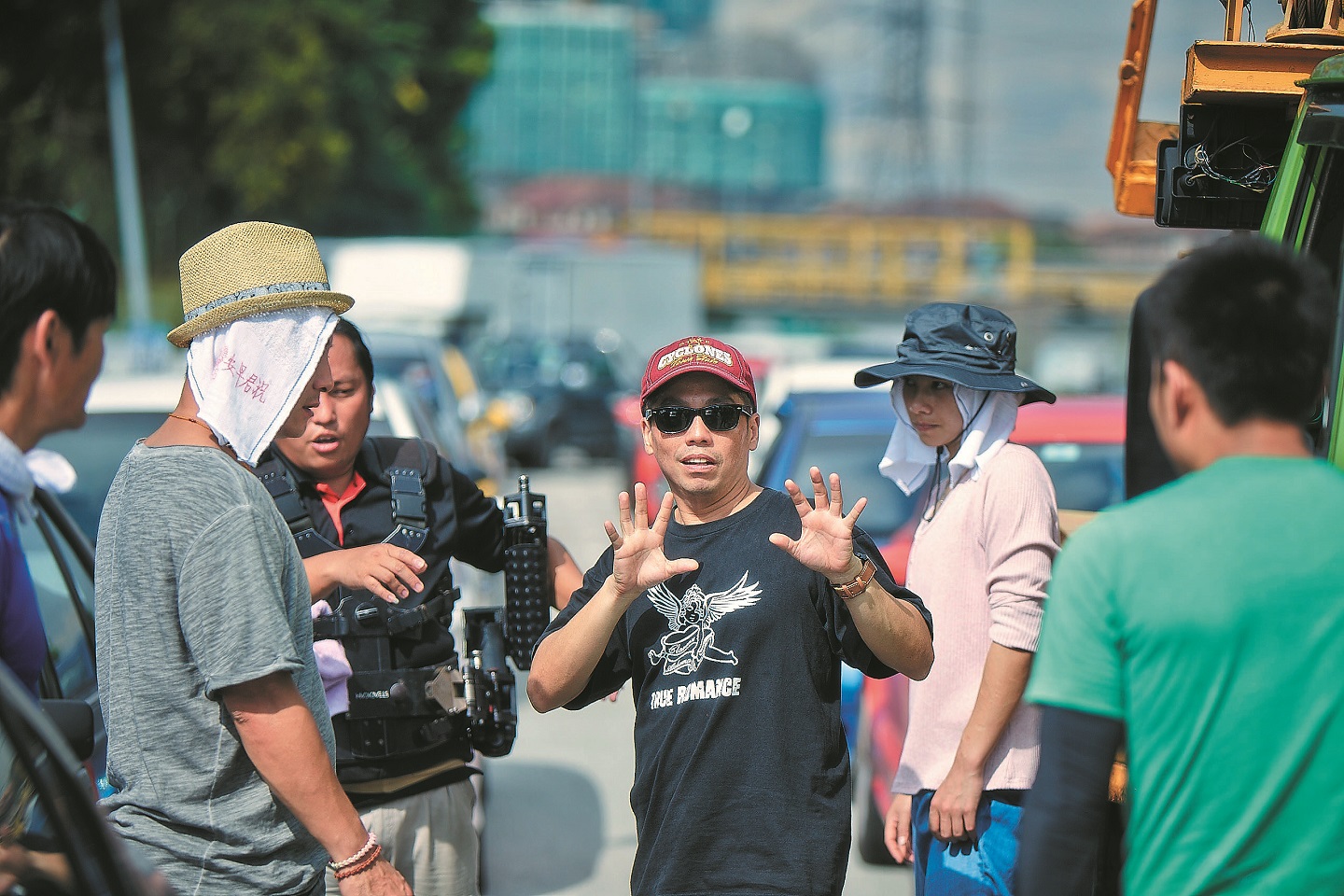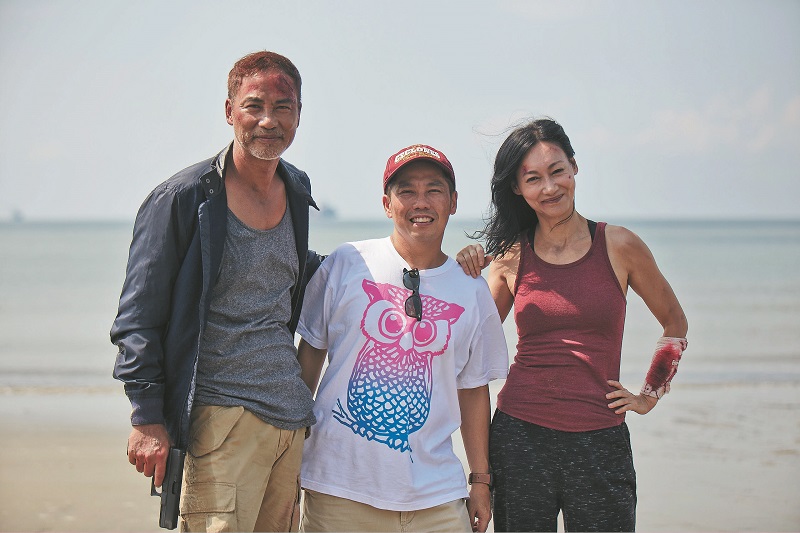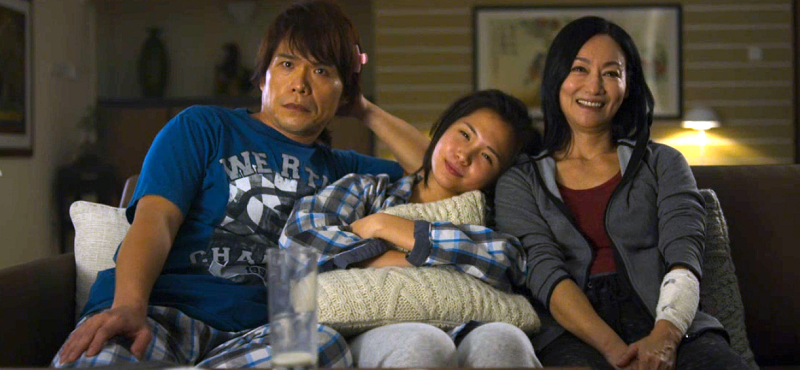
Ho’s latest full-length feature, Mrs K, has already made its rounds at international festivals, earning him a standing ovation at the Far East Film Festival in Udine, Italy. Currently showing in local cinemas, Mrs K would seem an intriguing choice for cinema-goers. It is an action flick with a plot about revenge and a violent past but the star, Kara Hui, is middle-aged. A mix of familiar and unfamiliar names makes up the rest of the cast, including Taiwanese rock star Wu Bai, Hong Kong superstar Simon Yam, Malaysian actor Faizal Hussein and some new local faces.o Yuhang, who is wearing his signature cap, has an unassuming air about him as he walks up to the restaurant at which we are meeting. It is a presence perhaps befitting the role of observer that the award-winning filmmaker often assumes behind the camera. But it is certainly not reflective of his current stature, particularly in film festival circles worldwide.
Then, there is Ho at the helm of his first bona fide action movie, and his most “commercial” one yet. He had appeared on the independent film scene with the critically praised debut feature-length film Min in 2003, which won him the Special Jury Prize at Festival Des 3 Continents in France. His 2006 effort, Rain Dogs, is a representative work stylistically, depicting a refreshingly different and gritty side of Kuala Lumpur. But it was 2009’s At The End of Daybreak that exposed his work to a wider public. Described as beautifully shot and noir-like, it won the NETPAC prize at the Locarno International Film Festival and made Ho a director to watch.
The film also marked Hui’s first collaboration with the director, for which she won seven Best Actress awards, including at the Hong Kong Film Awards 2010, as well as Best Supporting Actress at the Asian Film Awards. The film also snagged Malaysian newcomer Ng Meng Hui the Best Newcomer award at the latter event.
Perhaps that is Ho’s most prominent strength as a director — the ability to nurture and capture compelling characters and interpret them on screen. As far as filmmaking goes, the director would qualify as an auteur, having written all the films he has directed thus far.
“I think I work more like a sculptor and painter than a conventional filmmaker. Rather than rely on plotting, my films are more character-based. It is they who decide the momentum and how the story takes shape,” says Ho.

A conversation with the director about film and cinema requires some homework. His long-time producer Lorna Tee revealed in an interview that Ho impressed Martin Scorsese so much when he met the famous director that Scorsese still sends him films to watch from his own collection.
But the Petaling Jaya boy says he had no inclination to venture into filmmaking when growing up, though watching movies was a passion. “I did well in school, although I was bored by it. I enjoyed football, played music (the piano) and was very good in literature,” he recalls.
Nevertheless, the self-confessed introvert also remembers skipping school for trips to the cinema. “It’s a very private enjoyment for me. I would go catch the morning movie session. I remember watching The Abyss by James Cameron. There’d be two people in the cinema and one of them was me. Then I’d come out and take the bus home,” smiles Ho.
He went on to study electrical engineering in the US and worked there for two years before deciding to return home. He then ventured into the TV commercial world. His creative — and often funny — advertisements were an early indication of his natural aptitude for storytelling.
While one would not describe his films as commercial, Ho’s personal taste in movies is eclectic, to say the least. Mrs K is an indirect tribute to the Hollywood westerns that he had loved as a child. “My earliest memories are of watching westerns on RTM. I love how they were shot. There’s just something about them that’s larger than life … You’d notice that in Mrs K, the characters have no names. That’s from the Clint Eastwood films, like The Good, The Bad and The Ugly, the Dollars Trilogy,” says Ho.
In fact, his tendency to feature strong female leads or mother figures harks back to when he saw Sigourney Weaver in Alien. He says, “I’d never seen anything like that. I’d watched a lot of westerns and kung fu movies but it was so refreshing to see a female lead, and there was something intimate about it, I felt. Even though it was a sci-fi film about aliens and monsters, something struck me. It was the first time I went to the cinema to see a movie twice.”
On working with Hui again, Ho says he tailored the film for her. While in At The End of Daybreak, he found in her a non-typical maternal figure — and gave her the opportunity to revive her acting career and shed the martial arts star image — for Mrs K, he really wanted to watch her in her element in an action film again.
“This woman in the movie has a past. In a way, Kara also has an interesting past. She was a big star in the Sixties and Seventies, but at some point, people just stopped calling her as she grew older. So I wrote that she’s a housewife in this film but what she’d done before wouldn’t let her rest when someone shows up at her door and says she looks familiar. I just thought if I didn’t shoot an action film with her, I’d regret it. When I asked if she was keen, she said ‘you had better be quick’ because it’s not easy for her. She was 55 years old when I shot her for this,” says Ho, adding that Hui did about 90% of the stunts herself.

That the director, with his unique talent for casting characters, managed to get the painfully shy Wu to come on board is amazing. Ho convinced him to do a character that is entirely opposite to his rock star image — a gynaecologist who is the only character in the film who cannot fight. “He just laughed when I told him, and asked, ‘Are you serious?’ But he liked it. ”
When pointed out that he likes to flip the norm, Ho laughs. “I think it’s inevitable but I don’t know why. It really is about doing films I would want to watch. I am my first audience anyway. When I write, I am the very first person I talk to, in a sense.”
It is also a reflection of how much more at ease he is now with the creative process, admitting to having over-analysed before. But when it comes to achieving what he wants as an end result, the goal is still clear.
“There are more films made these days, everywhere. The market is saturated … but I think anything you see today — long or short form — is screaming with messages. For me, it’s too didactic and boring. It would seem while they dare to show a lot more, it is still generally safer and more PC in terms of content. I don’t want to make films like that,” Ho says simply.
“I would like people to see and connect with the characters, even the villains. I hope even the minor characters in this film will make people feel something. It’s like the old westerns that I liked. I realised later that they were morally very grey. This film (Mrs K) has that sort of element. It’s not black and white. In a way, everyone has his or her reasons. And I like that.”


